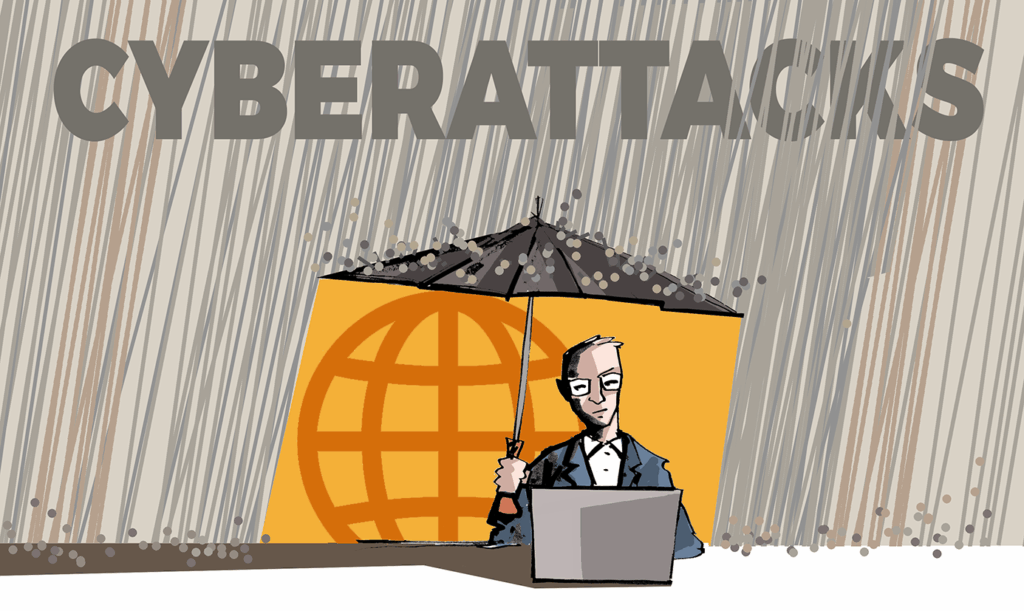
11 – 18 July 2025

Dear readers,
The past week has witnessed a surge in cyberattacks, underscoring the growing vulnerability of digital systems amid evolving threats.
Hackers stole $500,000 in cryptocurrency by deploying a malicious Cursor AI extension, exploiting AI supply chains and highlighting the risks of trusted tools turning into attack vectors.
The Salt Typhoon campaign intensified, compromising critical US infrastructure, including telecommunications and government networks, prompting the US House to pass the NTIA Cyber Leadership Bill to formalise agency coordination after severe telecom breaches.
In the UK, a cyberattack on Co-op exposed the personal data of 6.5 million members, prompting a public apology from its CEO, while in Azerbaijan, over 6,200 government workers fell victim to poor cyber hygiene, exposing public sector weaknesses.
Meta faced backlash after a small business lost thousands due to a breach. Android users, instead, were targeted with trojanized Telegram APKs exploiting the Janus vulnerability, alongside MacOS devices hit by a fake Termius app.
Google urged caution as Gmail’s AI tools faced new threats, signalling risks in automated systems.
This wave of incidents, driven by sophisticated tactics and geopolitical tensions, reveals a critical need for robust defences. However, the reactive nature of legislative and corporate responses raises doubts about their ability to keep pace with this escalating threat landscape.
Quantum computing
The week behind us also marked a significant leap forward in quantum computing, spotlighting Europe’s ambitious push to reclaim global influence. The EU announced a bold investment strategy to bolster quantum technology to counterbalance the US’s private-sector dominance and China’s state-driven efforts. The initiative includes the development of quantum computers using glass and light, with European researchers unveiling a scalable quantum light factory chip that promises enhanced computational power. Complementing this, a groundbreaking project to create the world’s first single-photon universal quantum system, slated for 2026, showcases Europe’s focus on practical quantum applications. These advancements position Europe as a key player amidst a global race, though the narrative of regained influence is tempered by challenges in matching the US’s private funding and China’s centralised resources, suggesting a competitive yet uneven playing field.
EU’s digital policy developments of the week
The EU confirmed the rollout of the AI Act, effective August 2025, and released the General-Purpose AI (GPAI) Code of Practice to guide compliance for leading AI providers, aiming to balance innovation with safety. However, legal uncertainty looms for non-signatories, as the code’s voluntary nature may burden companies proving compliance through alternative means, raising questions about enforcement equity.
Meanwhile, Apple faces accusations of stifling browser competition on iOS, prompting scrutiny under the Digital Markets Act (DMA), while a surge in AI-generated fake news tests the EU Digital Services Act’s ability to curb misinformation, exposing potential regulatory gaps. The EU’s launch of the EuroSky satellite constellation, announced this week, seeks to reclaim digital sovereignty by enhancing secure connectivity, though its success hinges on funding and geopolitical cooperation.
Meta encountered fresh EU backlash for DMA non-compliance, particularly over data practices, intensifying calls for stricter oversight.
The Netherlands urged the EU to reduce reliance on US cloud providers, advocating for a Europe-first digital infrastructure. Yet, this shift risks fragmenting the market and increasing costs, challenging the narrative of seamless integration.
Chip export control side effects
Nvidia announced plans to resume AI chip sales to China following productive US-China talks, signalling a potential thaw in restrictions that had strained supply chains, though compliance with US export rules remains a focal point. Nvidia’s CEO, Jensen Huang, asserted that the Chinese military’s use of US chips is unlikely, aiming to ease concerns and justify the restart. Yet, this claim lacks independent verification, raising questions about oversight effectiveness.
Meanwhile, Malaysia enforced stricter trade controls on AI chips of US origin, aligning with US efforts to curb China’s access to advanced technology, which has disrupted regional semiconductor markets and prompted local firms to seek alternative suppliers.
For the main updates, reflections and events, consult the RADAR, the READING CORNER and the UPCOMING EVENTS section below.
Join us as we connect the dots, from daily updates to main weekly developments, to bring you a clear, engaging monthly snapshot of worldwide digital trends.
DW Team
RADAR
Highlights from the week of 11 – 18 July 2025
Ethical AI must prioritise the common good over profit or efficiency.
Crypto jobs are going mainstream as market value climbs past $3.8 trillion and top economies offer stronger policy support.
EXA Infrastructure has launched a major 1,200 km fibre route connecting key European hubs, featuring the first new North Sea subsea cable in 25 years.
Pennsylvania to become a key player in Trump’s ‘AI economy’, as major energy and tech projects worth $100 billion are announced during Pittsburgh summit.
Cambridge facility is Meta’s largest engineering investment outside the US, signalling a push for leadership in immersive AI wearables.
Experts warn that children are using AI chatbots instead of seeking real friendships, raising concerns about emotional dependency and blurred lines between human and machine.
Seoul’s bold push to merge cutting-edge AI with its defence industry is set to redefine how nations balance security, innovation, and ethical responsibility in the age of intelligent warfare.
President Bukele’s controversial Bitcoin policy is yielding long-term value, despite ongoing international criticism.
Renewables face rollback under Trump’s infrastructure blueprint.
Military AI is advancing faster than global rules can keep up, raising urgent questions about accountability, hidden biases, and the terrifying possibility of wars escalating beyond human control.
The US plans to ban undersea cables using Chinese technology from connecting to its networks, citing rising cybersecurity and espionage risks.
SpaceX backs Musk’s xAI venture with $2 billion, linking space technology and AI instead of keeping the two sectors separate.
Featuring 12 stops and archival animations, the self-guided route highlights Miep Gies and other rescuers, offering fresh insight into courageous wartime acts.
Elon Musk’s xAI has secured a $200 million Pentagon contract, raising ethics questions following recent scandals involving its Grok chatbot on social media.
READING CORNER
An in-depth look at the Grand Ethiopian Renaissance Dam (GERD) and the complex diplomatic conflict over water and energy between Ethiopia, Egypt, and Sudan.
Do diplomats have personal rights under international law, or are all rights held by the sending state? Alan Franklin examines why diplomatic immunity often leaves individuals with ‘a right without a remedy’.
AI made the calls at Wimbledon — and sparked global debate.
The OEWG on ICT security has adopted its Final Report after intense negotiations on responsible state behaviour in cyberspace.
UPCOMING EVENTS
July 2025 online courses | Diplo Academy Diplo Academy is excited to announce the start of three online courses on 21 July 2025:
Five years on: Achievements, failures, and the future of the UN Cyber Dialogue The one-hour session will bring together four discussants – two representatives






















